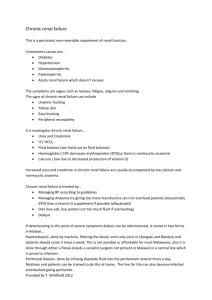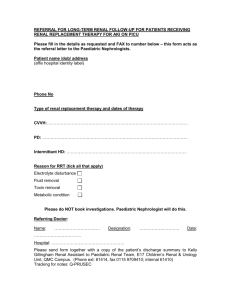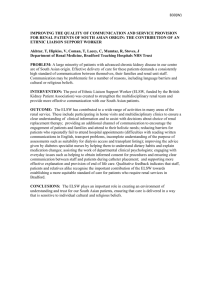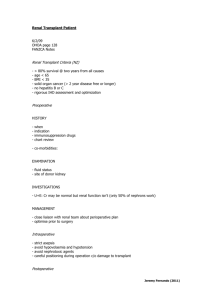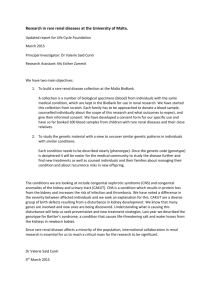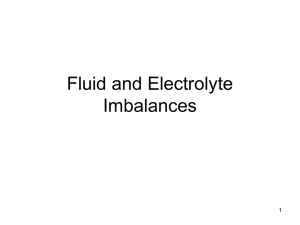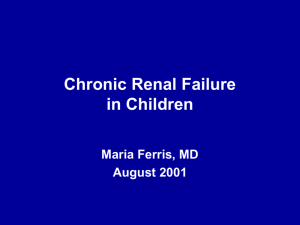DEFINITION: Progressive and irreversible deterioration of
advertisement
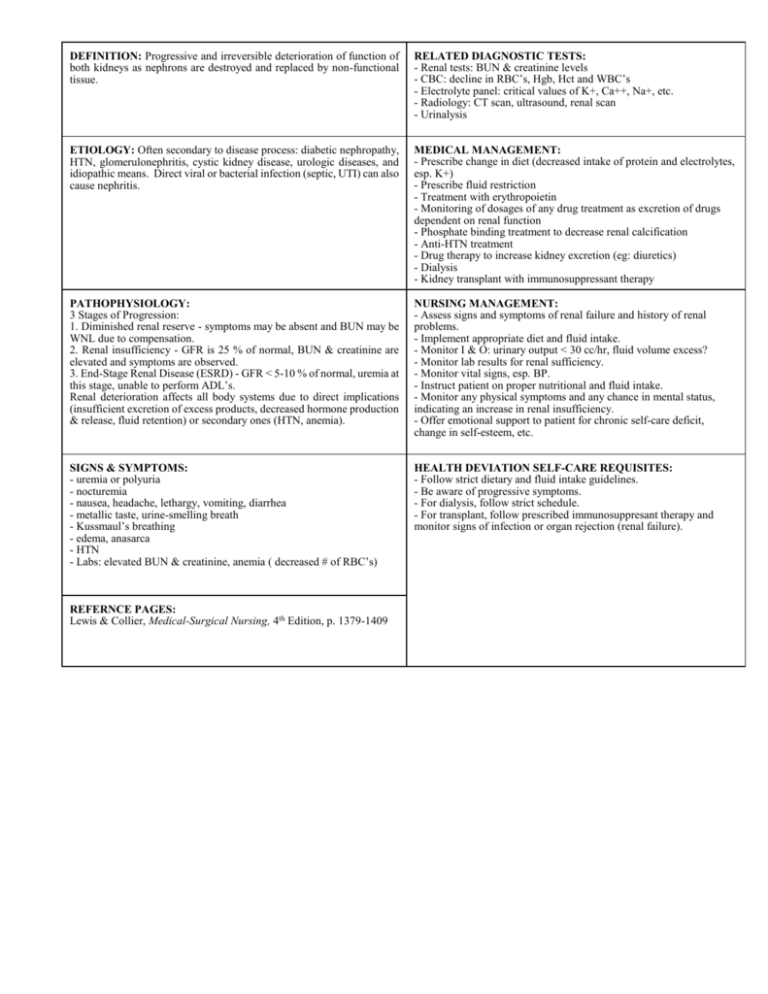
DEFINITION: Progressive and irreversible deterioration of function of both kidneys as nephrons are destroyed and replaced by non-functional tissue. RELATED DIAGNOSTIC TESTS: - Renal tests: BUN & creatinine levels - CBC: decline in RBC’s, Hgb, Hct and WBC’s - Electrolyte panel: critical values of K+, Ca++, Na+, etc. - Radiology: CT scan, ultrasound, renal scan - Urinalysis ETIOLOGY: Often secondary to disease process: diabetic nephropathy, HTN, glomerulonephritis, cystic kidney disease, urologic diseases, and idiopathic means. Direct viral or bacterial infection (septic, UTI) can also cause nephritis. MEDICAL MANAGEMENT: - Prescribe change in diet (decreased intake of protein and electrolytes, esp. K+) - Prescribe fluid restriction - Treatment with erythropoietin - Monitoring of dosages of any drug treatment as excretion of drugs dependent on renal function - Phosphate binding treatment to decrease renal calcification - Anti-HTN treatment - Drug therapy to increase kidney excretion (eg: diuretics) - Dialysis - Kidney transplant with immunosuppressant therapy PATHOPHYSIOLOGY: 3 Stages of Progression: 1. Diminished renal reserve - symptoms may be absent and BUN may be WNL due to compensation. 2. Renal insufficiency - GFR is 25 % of normal, BUN & creatinine are elevated and symptoms are observed. 3. End-Stage Renal Disease (ESRD) - GFR < 5-10 % of normal, uremia at this stage, unable to perform ADL’s. Renal deterioration affects all body systems due to direct implications (insufficient excretion of excess products, decreased hormone production & release, fluid retention) or secondary ones (HTN, anemia). NURSING MANAGEMENT: - Assess signs and symptoms of renal failure and history of renal problems. - Implement appropriate diet and fluid intake. - Monitor I & O: urinary output < 30 cc/hr, fluid volume excess? - Monitor lab results for renal sufficiency. - Monitor vital signs, esp. BP. - Instruct patient on proper nutritional and fluid intake. - Monitor any physical symptoms and any chance in mental status, indicating an increase in renal insufficiency. - Offer emotional support to patient for chronic self-care deficit, change in self-esteem, etc. SIGNS & SYMPTOMS: - uremia or polyuria - nocturemia - nausea, headache, lethargy, vomiting, diarrhea - metallic taste, urine-smelling breath - Kussmaul’s breathing - edema, anasarca - HTN - Labs: elevated BUN & creatinine, anemia ( decreased # of RBC’s) HEALTH DEVIATION SELF-CARE REQUISITES: - Follow strict dietary and fluid intake guidelines. - Be aware of progressive symptoms. - For dialysis, follow strict schedule. - For transplant, follow prescribed immunosuppresant therapy and monitor signs of infection or organ rejection (renal failure). REFERNCE PAGES: Lewis & Collier, Medical-Surgical Nursing, 4th Edition, p. 1379-1409


